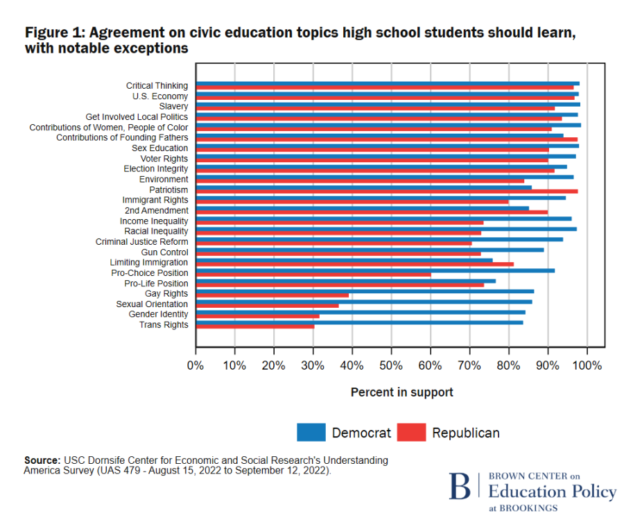- Facebook30
- Threads
- Bluesky
- Total 30
Anna Saavedra, Meira Levinson, and Morgan Polikoff report some results from the August-September Understanding America Study that reveal what Americans believe about teaching controversial issues in schools. The sample is 3,751 representative adults, and the survey is a high-quality instrument that I have previously used myself.
The headline is that Americans broadly agree about discussing many issues that might be considered controversial in high school. There is consensus about the value of discussing issues from slavery to local politics, and from sex education to the environment–plus the contributions of both the founders and women and people of color. There are no meaningful differences by political party on those items. It also doesn’t matter how most of the issues are named. For example, similar proportions support discussing “limiting immigration” and “immigration rights,” or “2nd amendment” and “gun control.”
There is much less agreement about discussing sexual orientation and related issues. Democrats are strongly supportive; Republicans oppose. The whole sample is less supportive of teaching controversial issues at all in elementary school, and there again, issues related to sexuality and gender get the lowest support.
See also public opinion on Critical Race Theory; Teaching Honest History: a conversation with Randi Weingarten and Marcia Chatelain; etc.
